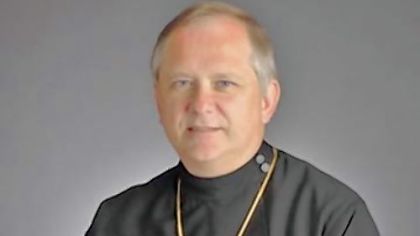The Catholic Church does a fairly good job providing religious education to children but seems to fail with young adults just when they are making independent decisions about how they will live, said Byzantine Catholic Archbishop William C. Skurla of Pittsburgh. Addressing the Synod of Bishops on the new evangelization, Archbishop Skurla said, “producing committed, faithful Catholics will determine the future of the church.”
While many bishops at the October synod have focused on the importance of catechesis and religious education, the archbishop said the church must be realistic about the need to vary educational approaches according to a person’s age. Small children learn the faith by watching and listening to parents, he said. A key task of the church at that point is to support parents and their marriage because “the ability to pray depends upon their ability to experience love, which is the starting point of a lifetime relationship with Jesus Christ.”
The second phase comes when the child goes to school and starts to learn that he or she can make choices. A child’s questions will grow in complexity and the answers must match the child’s age and ability to understand, the archbishop said.
For Archbishop Skurla, the key to the new evangelization comes with the third phase, which is when a young person prepares to leave home and live independently. Leaving home, young people are free to affirm or ignore their commitment to Christ and the church. If they receive guidance, support and answers to their questions, they go on to become parish leaders, priests or religious, he said. They enter university or the world of work “defending what they believe and trying to evangelize others.”
VATICAN CITY (CNS)





